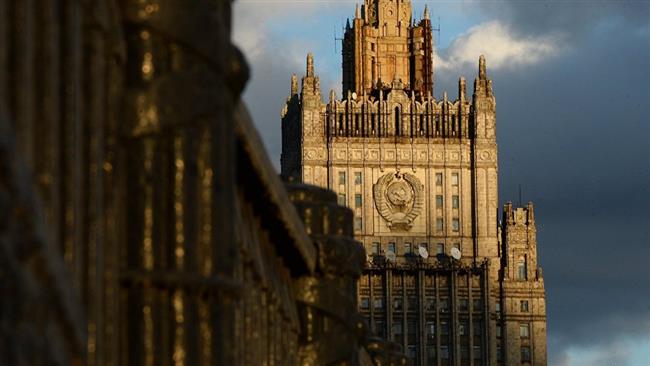The Russian Foreign Ministry has criticized US Secretary of State Rex Tillerson for pursing the policy of his predecessors to demonize Russia as a “threat” during a NATO meeting, expressing disappointment that the military alliance has decided to perform the traditional anti-Moscow “ritual dance”, Press T.V reported.
The ministry said in a statement on Saturday that Tillerson’s anti-Russia rhetoric during a speech a day earlier at the NATO headquarters in Brussels showed that the new US administration’s policy on Russia was no different compared to that of previous administrations.
“They always have one thing on their mind: the ‘Russian threat’ myth, ‘Russian aggression’ slander and endless mantras about the need to confront it collectively,” the ministry said, adding that it was baffled by the remarks after NATO and Russia officials met for the first time in almost three years to discuss cooperation on a range of issues.
The Russian Foreign Ministry said that NATO’s “dual-track approach” vis-à-vis Russia in which the alliance sought dialogue with Moscow while strengthening its military presence along Russia’s western border forces Russia to adopt a confrontational stance in relations with the military coalition.
“We have a legitimate question: can we expect any constructive approaches in the Russian-NATO relations when the alliance is stubbornly sticking to its old patterns, when the United States and its allies are obsessed with building up their military presence at our borders justifying it with the necessity of ‘containing Russia’?,” the ministry noted.
“In fact, we are being drawn into a confrontational paradigm of relations based on the logic of military confrontation,” the ministry said.
In his debut speech to the NATO foreign ministers, Tillerson said that the US would continue to back the Western military alliance against what he called “Russian aggression.”
“The US commitment to NATO is strong and this alliance remains the bedrock for trans-Atlantic security,” Tillerson said, adding, “The NATO alliance is also fundamental to countering both nonviolent, but at times violent, Russian agitation and Russian aggression.”
Relations between Russia and the West started to deteriorate some three years ago after political and military developments rocked Ukraine.
The control of the country, which used to be run by a Russia-backed government, fell into the hands of a pro-West government in February 2014, triggering unrest in the south and east of the country by ethnic Russians.
Crimea, a former Russian territory, rejoined Moscow in March 2014 while provinces neighboring Russia also formed self-declared republics.
The West has imposed an array of economic and military sanctions on Russia over Moscow’s alleged involvement in the conflict in eastern Ukraine, which has claimed more than 10,000 lives. Russia has denied involvement in the Ukrainian conflict.
During his stay in Brussels, Tillerson also met with the NATO-Ukraine Commission, a body tasked with assessing NATO-Kiev relations and cooperation, during which he reaffirmed Washington’s pledge to maintain sanctions imposed on Moscow over the Ukrainian conflict.
Moscow has reciprocated the Western sanctions by banning imports of a wide range of US and European foods.
R.S

